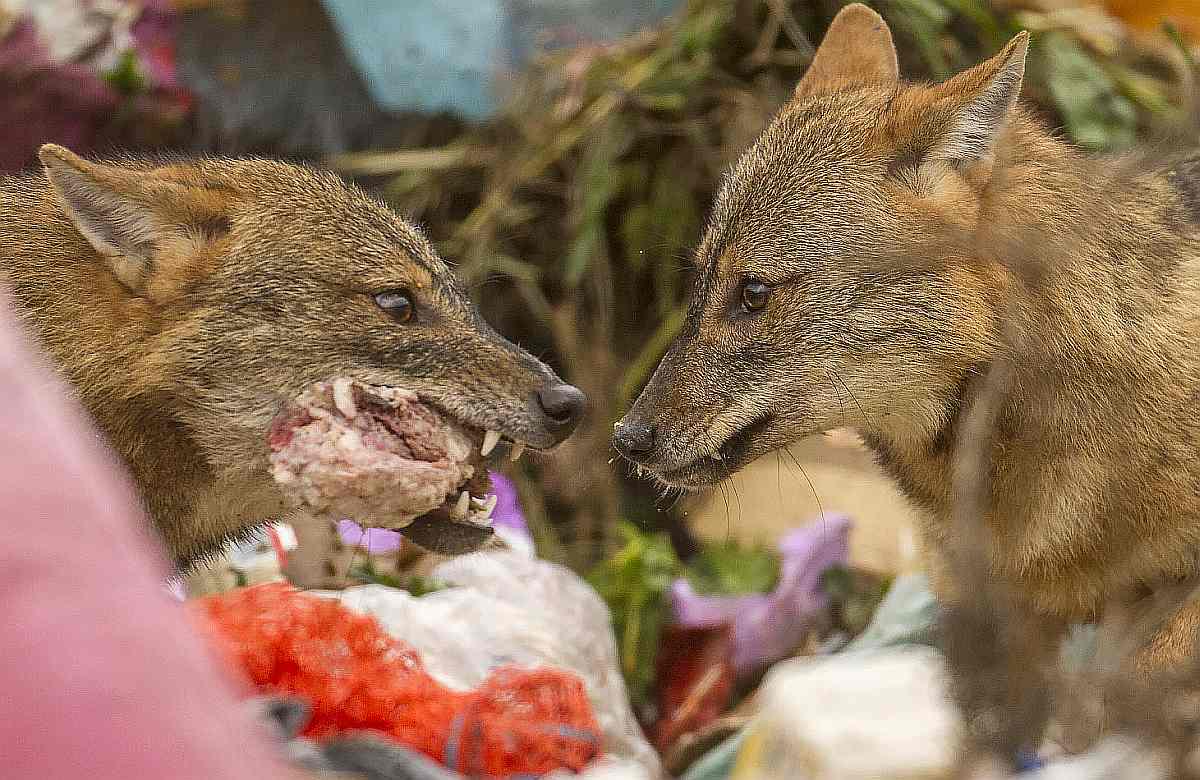Golden jackals, who are members of the dog family, weigh around 10 kilograms on average. The species has spread across Slovenia in the past few decades, and many people believe that golden jackals have a net negative effect on the environment. In late 2014, the Ministry of Agriculture lifted the golden jackal’s endangered species status.
The Biotechnical Faculty and the University of Belgrade recently published a study on golden jackals and their impact on the environment and the local community.
The researchers found that the recent increase in the population of jackals has had no measurable impact on the number of game animals in Serbia. Their press release said: “When the population of jackals in Serbia was on the increase, the population of brown hares remained stable, while the population of deer and wild boars actually increased. While jackals occasionally feast on these species, the effect was barely measurable.”
A stomach content analysis showed that jackals in Serbia primarily feast on rodents and waste from slaughterhouses – which often ends up in landfills. Therefore, jackals have a beneficial effect on the local community. In Serbia, jackals eliminate 3700 tons of animal waste per year, which reduces the risk of disease transmission to humans. According to the researchers, their services are worth more than 500,000 euros annually.
Jackals have their endangered species status lifted in Slovenia
The Slovenian Ministry of Agriculture, Forestry and Food said that jackals had their endangered species status lifted in late 2014. They are now listed as game animals, which means that they will be closely monitored.
According to the Ministry of Agriculture, their eating habits were the reason why they had their endangered species status lifted. “This move will allow us to manage the number of jackals in a sustainable way. Studies on the environmental impact of jackals have yielded inconclusive results. However, in our neighbouring countries, jackals have had a negative impact on the livestock industry, especially on lambs. They have also killed a number of indigenous animals, reducing the biodiversity of our ecosystems. Results from Croatia show that deer populations don’t grow in areas where there are great numbers of jackals. Even foxes are avoiding them, and foxes started fleeing to areas populated by people,” the Ministry of Agriculture said.
There are no official records kept on the number of jackals in Slovenia. This year, the Ministry of Agriculture will hire a contractor to monitor the number of jackals over a period of 2 years. “We will wait until the results are in. We will then assess the data – in terms of their numbers, geographical distribution and migration patterns – so that we can determine how to better manage the species,” the Ministry of Agriculture added.


































































